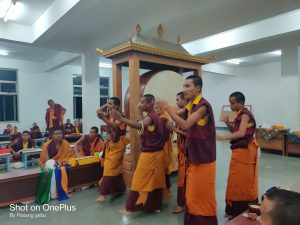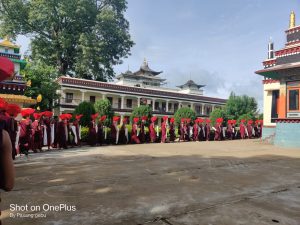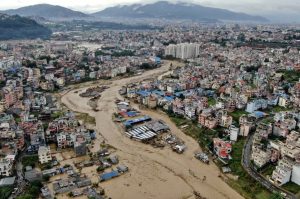
From September 28-29, 2024, 10 inches of rain fell in the Kathmandu Valley. Kathmandu was cut off all weekend, as the three highways out of the city were blocked by landslides.
True Lhamo writes, “Unprecedented heavy rains in Nepal have triggered landslides, causing significant damage to the access roads leading to the Amitabha Retreat Center in Kathmandu.
“The landslides have resulted in blocked and cracked roads, along with additional damage within the retreat center’s premises.
“Our road going up to the retreat Center has cracked and settled down and some retaining wall needs to be built due to landslides.
“Any donations sent to the Amitabha Foundation Nepal account, or to your local Amitabha Foundation center, for road repairs and restoration of the affected areas would be greatly appreciated and immensely helpful.”
To make a tax-deductible donation in the US, please make out your check in USD to Amitabha Foundation, and mail it to PO Box 2572, Aptos, CA 95001, or donate online here.
Thank you for your generous support!


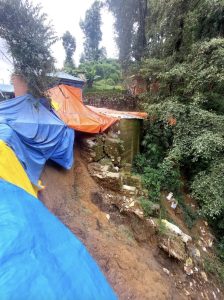
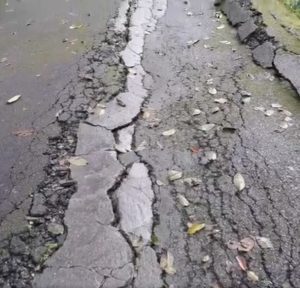
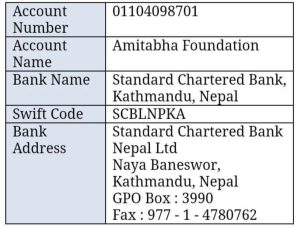
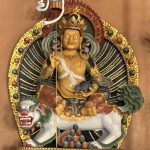
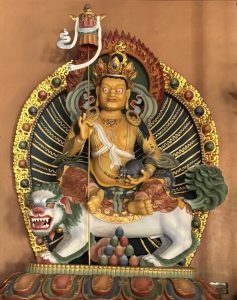
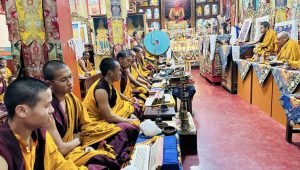
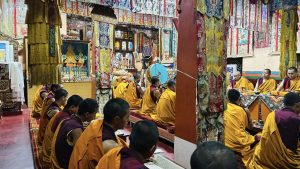
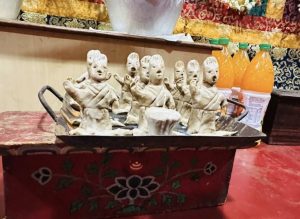
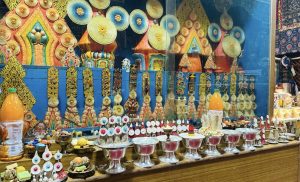
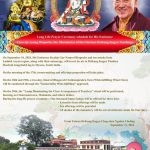
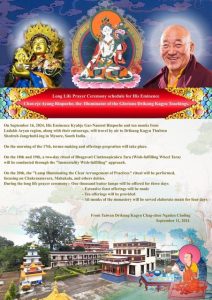
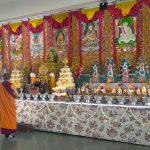
 Yarney Shrine, 2021
Yarney Shrine, 2021